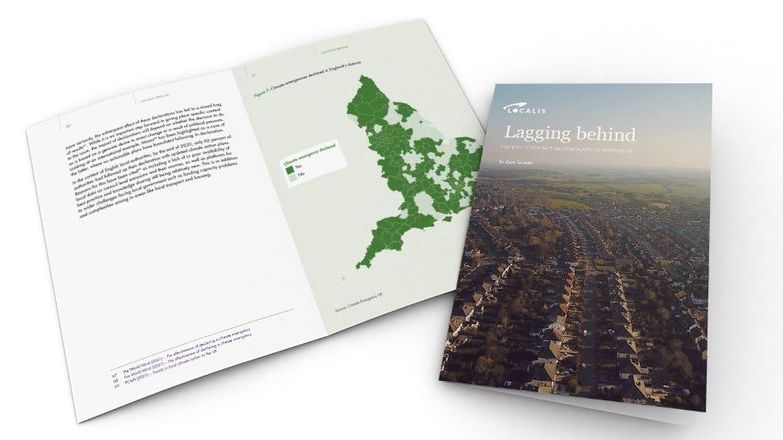
One size fits all for energy efficiency won’t work
Failure to factor in huge regional variations in property prices when incentivising homeowners and landlords to retrofit their properties to meet national net zero targets could risk seeing a reduction in the quality and availability of housing stock.
According to the report, in some local authority areas of the north and midlands, the estimated costs of improving home energy can be around 25 per cent of property values, while in affluent parts of London and the south east retrofitting with heat pumps represents less than 2 per cent of overall property value.
For example, in the red wall constituency of Burnley, where nearly four-in-five dwellings need to attain EPC Grade C standards, standard retrofitting costs of £24,000 are equivalent to a quarter of median house prices of £99,500. However, in the Royal London Borough of Kensington and Chelsea, where median house prices are £1,317,500, retrofitting costs are equivalent to a mere 1.8 per cent of overall property values.
COP 26
The UK Government announced their ‘Build Back Better’ initiative in 2020, however, the policy presents problems for the private rented sector where properties are of low value, landlords are unlikely to have either the rental income or equity to finance upgrades. Furthermore, homeowners in such areas on low income have no incentive to fund expensive improvements that add no value to the property.
Lively debate at ‘Lagging Behind’ report launch
On 21 October 2021, the report entitled 'Lagging behind – energy efficiency in low viability properties' was launched by the think tank, Localis at the Council Room, One Great George Street, Westminster. The research was sponsored by Propertymark and the NRLA.
Recommendations for Central Government
The Heating and Building Strategy aims to help homeowners make the transition to low carbon heating, however, in order to properly address the retrofit challenge it must:
- Provide details of a localised funding mechanism for retrofit to help authorities in areas with low-viability housing achieve targets
- Provide clearer incentives and long-term clarity on timelines to ensure retrofitting can be achieved in the private rental sector
- The strategy must be coordinated with the planning reforms and part of a joined-up approach to the nation’s housing stock
Recommendations to local government:
- Developing ‘one stop shops’ to engage with landlords to find suitable methods to facilitate retrofit at pace has been recommended by stakeholders such as the Local Government Association
- Through an independent and formal subregional structure, local authorities would also be able to act on retrofitting at an aggregated scale
- Setting up one stop shops as joint ventures would allow authorities to collect and analyse aggregated data regarding housing stock requiring retrofit and designing bespoke solutions in how to accomplish this
- One stop shops would allow local authorities to better understand the personal circumstances of landlords in the area and better tailor engagement and awareness-raising on retrofitting
Other report recommendations include calls for:
- local authorities to come up with local retrofit jobs strategies to make use of skills and supply chain opportunities
- central government to provide clear and concise information and timelines as well as more readily understood incentives
- The Department for Business, Energy and Industrial Strategy to frontload the £3.8bn Social Housing Decarbonations Fund Demonstrator to deliver cost savings through acting at scale








